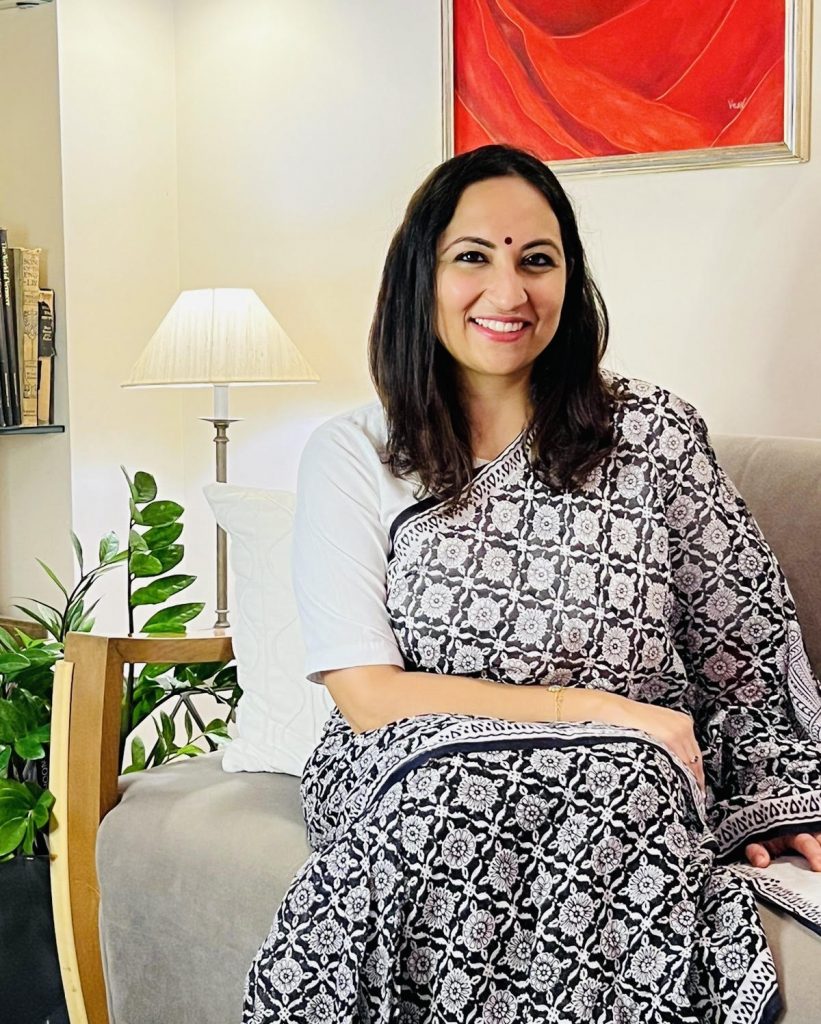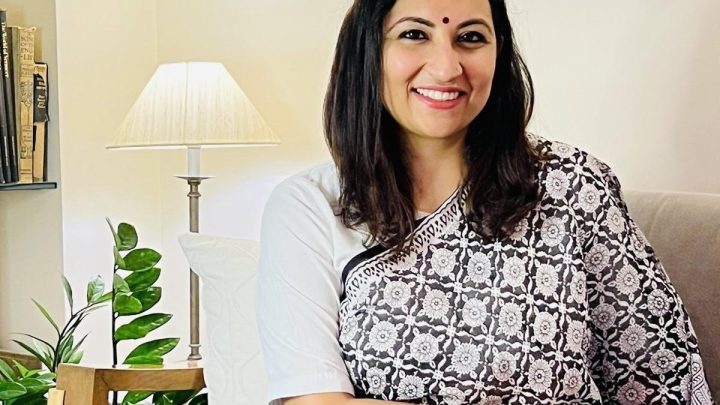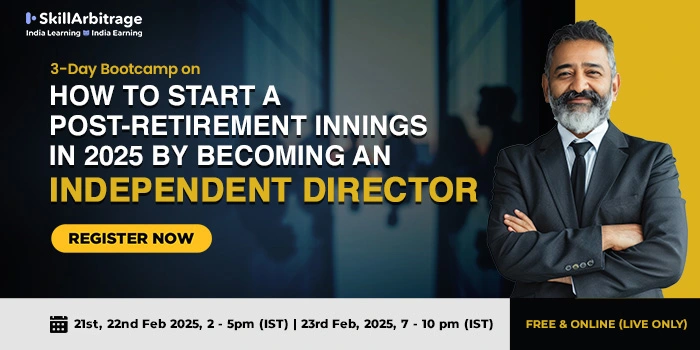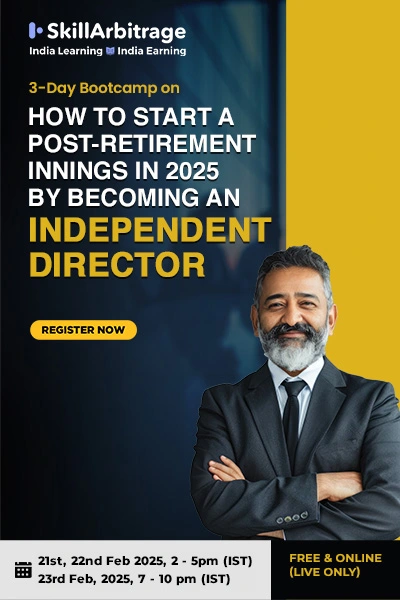Interviews
4584
0
0
“Filing false complaints may initially seem like a petty victory, but it leaves both parties with much resentment and whopping legal fees.” – Addressing the issue of false cases: Mrinalini Rajpal, Independent Legal Counsel- Family and Matrimonial Law
This interview was taken by SuperLawyer Team
Posted on June 17, 2024
This interview has been published by Namrata Singh and The SuperLawyer Team

Reflecting on the beginnings of your career in law, could you share about your journey, about your family and what inspired you to pursue this path of Law?
I come from a Sindhi business family that has been in the petroleum industry for five generations. Despite a business background, the elders always placed a strong emphasis on education, encouraging the growth of several doctors, engineers and business graduates within the family. My maternal side of the family were well-known producers and distributors in the Hindi film industry. A legal career was not a typical path within my family background, but on reflection, I feel it had always been my true calling.
My aspiration to pursue a legal career began at the young age of 13 when, at my school, JB Petit High School, Mumbai, I attended a lecture on environmental law by the eminent Senior Counsel Mr. Navroz Seervai. His views on how law could be used as a tool to bring about transformative changes in society resonated deeply. The seed was further nurtured by regular teenager interests in legal fictional books and shows, and this led me to join Government Law College, Mumbai to pursue the 5-year degree course.
My interest in family law took root at a young age, influenced by personal relations. I witnessed the unfortunate plight of a family friend who despite being an educated lady, was in an emotionally abusive marriage but was unable to find a way out of it as she had no family or financial backing and was afraid of losing custody of her young children. Coming from a fiercely liberal background and school, it made me realise that there were people across strata who were stuck in a bad marital situation and were unaware of their options. I had hoped then, to be able to make a real difference in such situations and I am glad that I am finally in a position to realise that dream.
Your journey from commercial litigation to specializing in family law is quite fascinating. Could you share what prompted this transition and how it has enriched your professional outlook?
Whilst I always knew I would eventually specialise in family law; I did not want to pigeonhole myself in a specialisation early on. I am glad I took the long road experiencing and learning about the myriad aspects of the law. During my college days, I recognized my inclination towards litigation and took up internships with law firms to acquire practical experience. I also interned at the National Human Rights Commission and in my final year, I did a judicial clerkship with the Hon’ble Mr Justice (Retd) S.J. Vazifdar (Former Chief Justice of Punjab and Haryana High Court). I observed firsthand the intricacies involved in conducting trials and the skills of persuasion a litigating advocate must possess.
Upon graduation, I worked in several prestigious litigation firms, gathering knowledge and experience in difference areas of law such as media, real estate, arbitration, family, banking and finance. I learnt how to run a litigation holistically right from laying the foundation stone, being the first communication until its logical end. Working with the best litigators in Mumbai I learnt a lot of unique drafting styles, strategies towards a matter, practical tips on client handling or how to read a judge – with each matter furthering my skills as a litigator.
After spending a decade practicing commercial litigation, I took a sabbatical to expand my family and since then I have had the most wonderful experience raising my son–despite its inimitable challenges. It made me realize, like law, raising a child is a dynamic and ever-growing process, where you learn something new every day. I have also learnt the art of nuanced negotiating where I need to make my son believe that he has got his way!
In 2020 while the world was battling Covid, marital disputes spiked. I got a firm push towards family law when I helped a friend who was in the midst of a particularly tenacious negotiation against her well connected and financially sound (now ex) husband. He was unwilling to give her a fair settlement initially and she was out of her marital home with her young children. A long-winded expensive court battle was not an option. Extensive strategizing and negotiations eventually led to a satisfactory settlement, including a lumpsum alimony and a house in her name. This encouraged me to pursue my interest in family law and I joined the chambers of Senior Advocate Mrs. Mrunalini Deshmukh, to formally kickstart my practice. I was associated with her chamber for almost 2 years, whilst simultaneously building my independent practice.
In your experience, what is your perspective on false cases within the realm of family law? Have you encountered instances of such cases during your career, and if so, could you share your approach in handling them while upholding justice and maintaining ethical standards?
Matrimonial disputes are uniquely characterised with the baggage of bruised egos and scarred emotions on both sides – which unfortunately could result in acts of personal vendetta against the spouse (and family) at times. I have seen a sharp increase in matters where false complaints are being filed under Maintenance and Welfare of Parents and Senior Citizens Act, the Protection of Children from Sexual Offences Act (POCSO), and shockingly, even filing of false kidnapping cases, especially against the father. All these are awful pressure tactics, with a devastating impact on children. When one files a complaint for kidnapping or under POCSO- it appears that the party filing such complaint has forgotten that at the heart of the issue, there is a child being thrust into a conflict zone (which is the marital dispute essentially between the parents). To then further drag the child through such cases is adding additional trauma that the child most definitely does not deserve nor need.
My approach and advice is always- there are no winners in a divorce, so negotiate as hard as you can outside court in order to reach an amicable settlement and enter court only to file a mutual consent divorce Petition. I encourage parties to take all the help and external counsel possible, in the form of family, friends, mediators, marriage counsellors, well-wishers and lawyers. Exhaust all amicable possibilities including pre-litigation mediation and only once you’ve exhausted such possibilities and a settlement still hasn’t worked out, then go to court, but fight fair. Most importantly, if there is a child involved always remember that your north star is that young person, because your actions are shaping their future, and in the larger scheme, the future of generations to come.
Could you shed light on the importance of empathy and guidance in navigating clients through the emotional complexities inherent in family law disputes?
Empathy is a super-power and as a family lawyer one should be cognisant of it, and try and cultivate it. According to me, family law practice is more about understanding the root of the dispute and finding a way to settle the matter as amicably as possible, rather than pushing to litigate. Either one or both parties may come from a place of ego. During the first meeting, I am usually told by the client that they want to “show their spouse their place” not being mindful that when you burn your house, you burn with it. It is then our duty to talk the client off the ledge and make them realise the pit-falls of their actions. I am very glad about the fact that in the past year I have managed to amicably negotiate and settle a number of cases, some of which started off with extreme hostility – which has further fortified my belief that at the core of every dispute, there is an inherent desire to end the acrimony and move on. I strongly encourage parties to first try counselling- individual as also couples counselling -before taking any drastic steps. Often counselling fails, but by then tempers have calmed, the parties have got better perspective and they are more receptive to a settlement. I also realised that clients (and their families) want me to hand-hold them through this very difficult phase, reassuring them that I have got their back and in doing so, it becomes much easier to reason with them.
As an advocate for peaceful resolutions, how do you handle cases where litigation becomes unavoidable, and what steps do you take to mitigate adversarial dynamics?
Commercial litigation lawyers usually aspire towards a landmark victory in Court and being a part of landmark judgments, but family law is a unique space where as a family lawyer, you may not be spoken of in the same breath as commercial legal luminaries, but should always be remembered as someone who brought about a peaceful resolution within a family. Having said that, it is not always possible to amicably settle matters and sometimes it is necessary to battle it out in Court. My mantra is to always keep it fair and honest whilst keeping the larger picture in mind – no matter what the circumstances may throw your way. At times, I have had to even reign my own clients in, and not let egos take over the process. However, even within an acrimonious battle, I always try and keep the door ajar for the opposing party/ counsel to walk in and engage in a settlement at any stage.
In your experience, what are the most common misconceptions that clients have about family law, and how do you address them during consultations?
One common misconception is that filing false complaints against the spouse and/or family will put the right pressure on you and get you the desired result. Completely untrue. Whilst filing such complaints may initially seem like a petty victory, after a point the feeling fizzles out, leaving both parties and their families with much resentment, a mountain of paper-work and whooping legal fees. The advice I provide can’t be the same for every client, it has to be tailor made keeping in mind facts and circumstances, but the one consistent advice I give is, if you want to file such complaints, be prepared to stay in court for a long time, losing years of your life and not to mention a large part of your income.
What advice would you give to aspiring lawyers, particularly those interested in specializing in family and matrimonial law, based on your own career journey and experiences?
The most important yet basic advice I could offer is, do not bring your client’s energy back home, have an awareness about your own emotions and be mindful of your boundaries. A philosophy I strongly believe in is, if, as a family lawyer, you find yourself litigating more than amicably settling matters, you are doing it all wrong and need to rethink your perspective.
With the demanding nature of your legal practice, how do you prioritize self-care and relaxation? Could you share some of your favorite methods for unwinding and maintaining a healthy work-life balance amidst your busy schedule?
The balance between work and being physically and emotionally present for my young son, is challenging on many days. However, spending time with him is my absolute favourite way to unwind, especially after an exhausting day. We have some of the best conversations at dinner time. During the weekend, we catch up with our close-knit circle of family and friends and go for a swim at the CCI Club, which we both love. We love baking and cooking together. We also love discovering cafes around the city. To maintain a healthy work- life balance, I ensure that I start my day with a brisk walk by the sea, which both centres my thoughts and helps me plan my day. I have an incredible support system in my family and friends. I meet my friends for coffee and laughs at least once a week and those who don’t live in the city, we have a system of check-ins once every few days. I also ensure I meet up with my family almost every-weekend to get that much needed pampering. Both my siblings live out of the country so I make sure I take at least 1-2 holidays with them each year. At the end of the day, there is nothing that a well-rested night of sleep cannot cure.
Get in touch with Mrinalini Rajpal-







No comments yet
Be the first to share your thoughts about this interview.